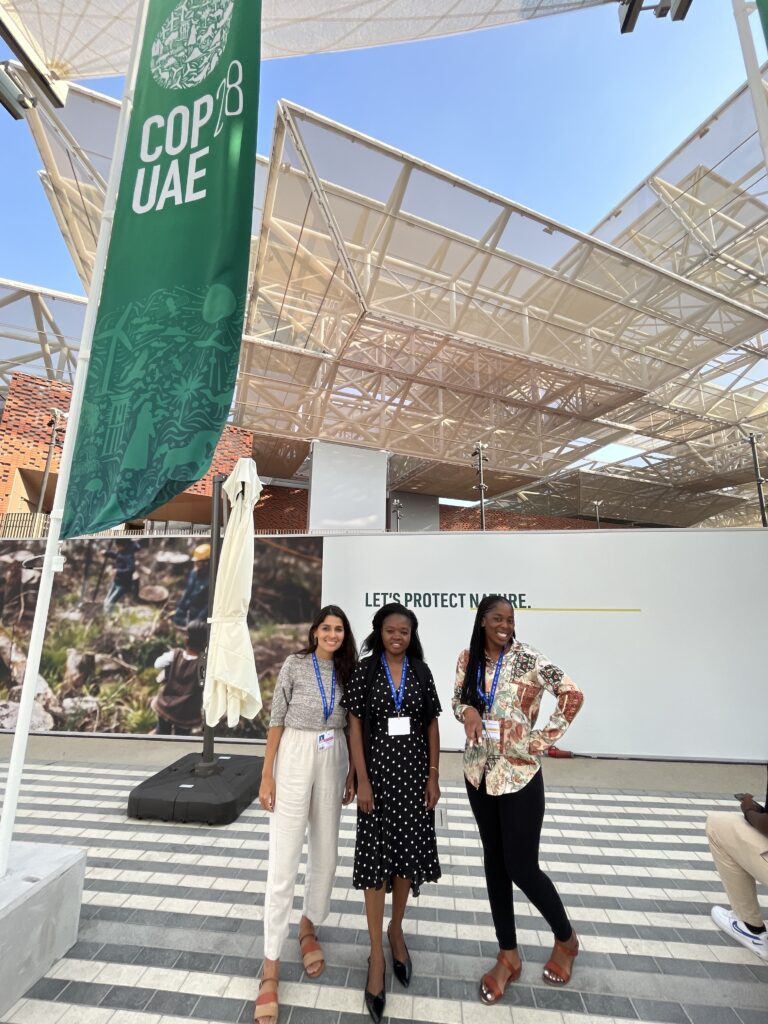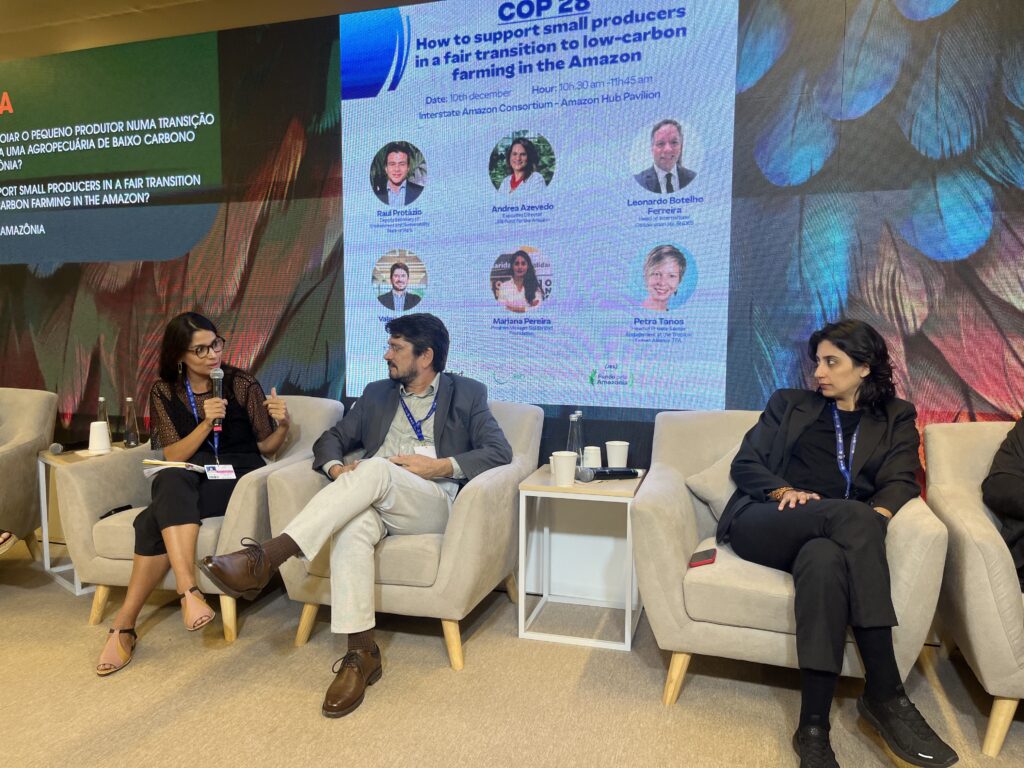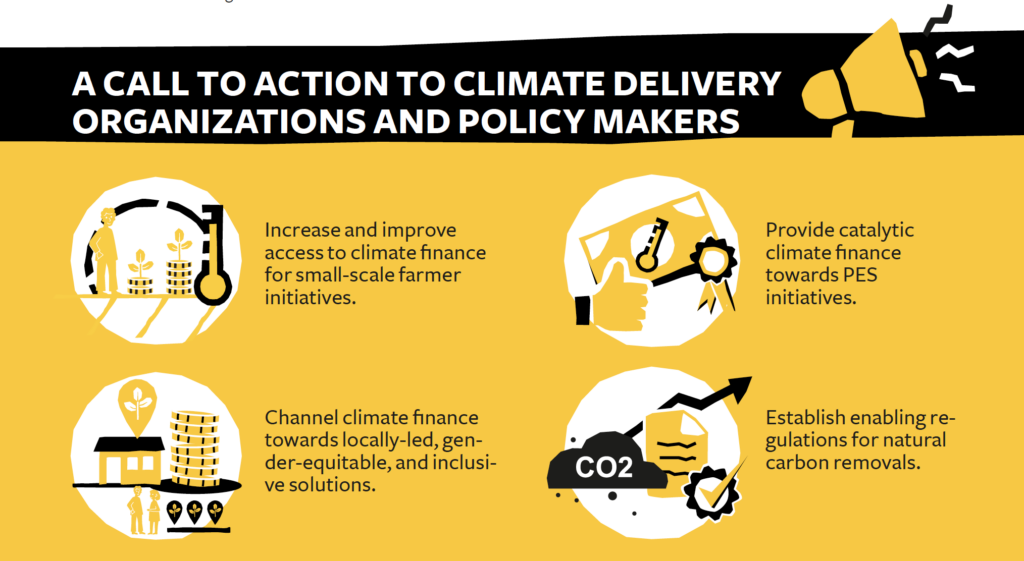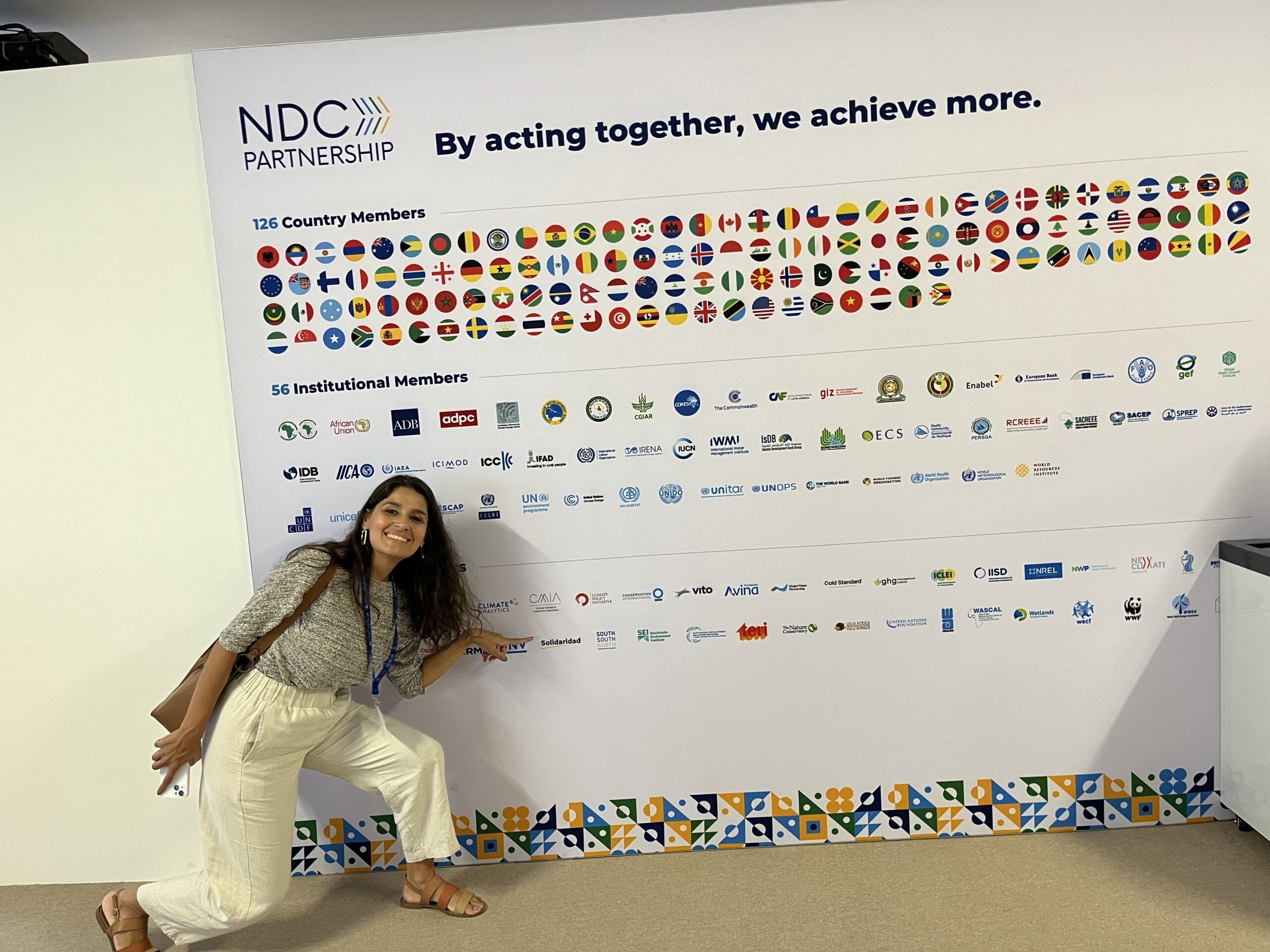Strengthening Alliances and advocating for Climate Finance
COP28 attracted a record-breaking attendance of over 100,000 delegates from 198 parties worldwide in December. World leaders, experts, policy makers, and others gathered to negotiate international climate policy, announce new commitments, and share climate change mitigation and adaptation progress. Solidaridad, recently accredited as an observer organization to the UNFCCC, sent a diverse delegation from our regional offices to engage in the discussions and amplify the voices of small-scale farmers. Currently, less than 1% of all international climate finance reaches small-scale farmers, despite being among those most affected by negative climate change impacts.
Solidaridad’s six-member delegation included representatives from Guatemala, Honduras, Zimbabwe, Kenya, Brazil, and Ghana. The delegation shared the perspective of small-scale farmers in numerous side events. Sweeny Binsari, Climate Lead at Solidaridad East & Central Africa, highlighted Solidaridad’s work in enhancing smallholders’ resilience through water-smart solutions. Nonsikelelo Nkomo of Solidaridad Southern Africa reaffirmed Solidaridad’s commitment to locally-led adaptation principles. And Mariana Pereira of Solidaridad in Brazil shared insights on inclusive agriculture policy and low-carbon agriculture in panels focused on the Amazon Basin.

It was extremely important in our case in Brazil to participate in two panels and share our field learning to advocates for a more inclusive agriculture and better effectiveness in the implementation of public and private policies
Mariana Pereira, Program Manager in Solidaridad Brazil
ALIGNING SMALLHOLDER INTERESTS WITH GLOBAL CLIMATE AMBITIONS
While overall outcomes of COP28 may have been disappointing, there are several important initiatives and agreements that are relevant for the position of small-scale farmers in the climate debate, including:
Fossil Fuel Phase Out
Despite heavy pressure from oil and gas interests, negotiators at COP28 achieved a historic agreement to transition away from fossil fuels by 2050. This monumental decision sets the stage for a just, orderly, and equitable shift in energy systems. The value of this agreement and effectiveness will depend on the actual integration of this decision in the National Determined Contribution (NDCs) to be submitted in 2025.
Loss and Damage Fund
The launch of the Loss and Damage Fund, securing over $85 million and $792 million in pledges, represents a critical step in providing financial support to vulnerable countries facing severe climate effects. However it is just a drop in the ocean considering the needs of vulnerbale peoples and countries and the negative impacts already being experienced by the vulnerable countries.
Food Systems Commitment
The UAE Declaration on Sustainable Agriculture, Resilient Food Systems, and Climate Action received endorsements from 159 countries (representing 77% of global food production), committing to integrate food and food systems into their Nationally Determined Contributions (NDCs) by 2025. A total of $7 billion in pledges will enhance efforts to curb emissions and adapt to climate change in agriculture. To ensure the interests and voices of smallholder farmers in the NDCs, it will be crucial to lobby and advocate for policies, actions, and incentives that improve resilience of smallholder farmers.
Climate Finance
While COP28 fell short of the $100 billion per year climate finance target, an additional $3.5 billion in pledges to the Green Climate Fund was secured. The challenge now is to ensure timely disbursement, particularly for adaptation needs. However, limited dicussions and negotations are taking place on the effectiveness of climate finance, considering that less than 1% climate finance reaches the 570 million farmers.
Launch of the Global Team Europe initiative (TEI) on deforestation-free value chains
The launch of the Global Team Europe initiative (TEI) on deforestation-free value chains initiative is aimed at providing technical assistance and capacity building to producing countries and smallholders to comply to the EU Deforestation Regulation (EUDR) and to foster inclusive partnerships with producing countries. It includes 70 million Euro in new funding – an important initiative to build smallholder farmer readiness to maintain market access to European markets.
Carbon markets
Limited progress in global carbon market discussions leaves uncertainty for another year. Key issues, including emissions avoidance and nature-based carbon removals, remain contentious and are expected to progress further in COP29. (Read our explainer on carbon credits and carbon markets.)

Strengthening Alliances for Smallholder Farmers
Impact at scale will require alliances with like-minded organizations. Solidaridad’s endorsement of locally-led adaptation principles and active participation in events like the Alliance of Champions for Food Systems Transformation reinforce Solidaridad’s commitment to amplifying smallholder farmers’ voices in international climate discussions.
Solidaridad signed a commitment to locally-led adaptation principles: a set of principles for climate change adaptation programs that prioritize locally-led approaches in decision-making and climate finance deployment. These principles were endorsed by an alliance of 100+ like-minded organizations and donors. The trend – and importance – of locally-led efforts is continuing to become relevant in climate finance discussions and provision because it can significantly improve the effectiveness of climate finance deployment.
The UN Climate Conference remains an important venue in the global fight against climate change. The agreement to phase out fossil fuels, strengthened NDCs, and new pledges to climate funds are all important milestones. However, more work is needed to ensure that the commitments made at COP28 are translated into action. Solidaridad is committed to playing its role in supporting these efforts and advocating for smallholder farmers’ inclusive climate policies.
The outcomes have set the stage for future negotiations and emphasize the need for a dramatic increase in flexible climate finance directed toward the most vulnerable. As Solidaridad works to strengthen alliances and take action, we remain dedicated to creating a sustainable and resilient future for smallholder farmers worldwide.
Read more
- COP 28 Solidaridad positioning: A Call To Rethink Climate Finance Strategies From a Farmers-First Perspective
- COP 28 UNFCCC End Release


